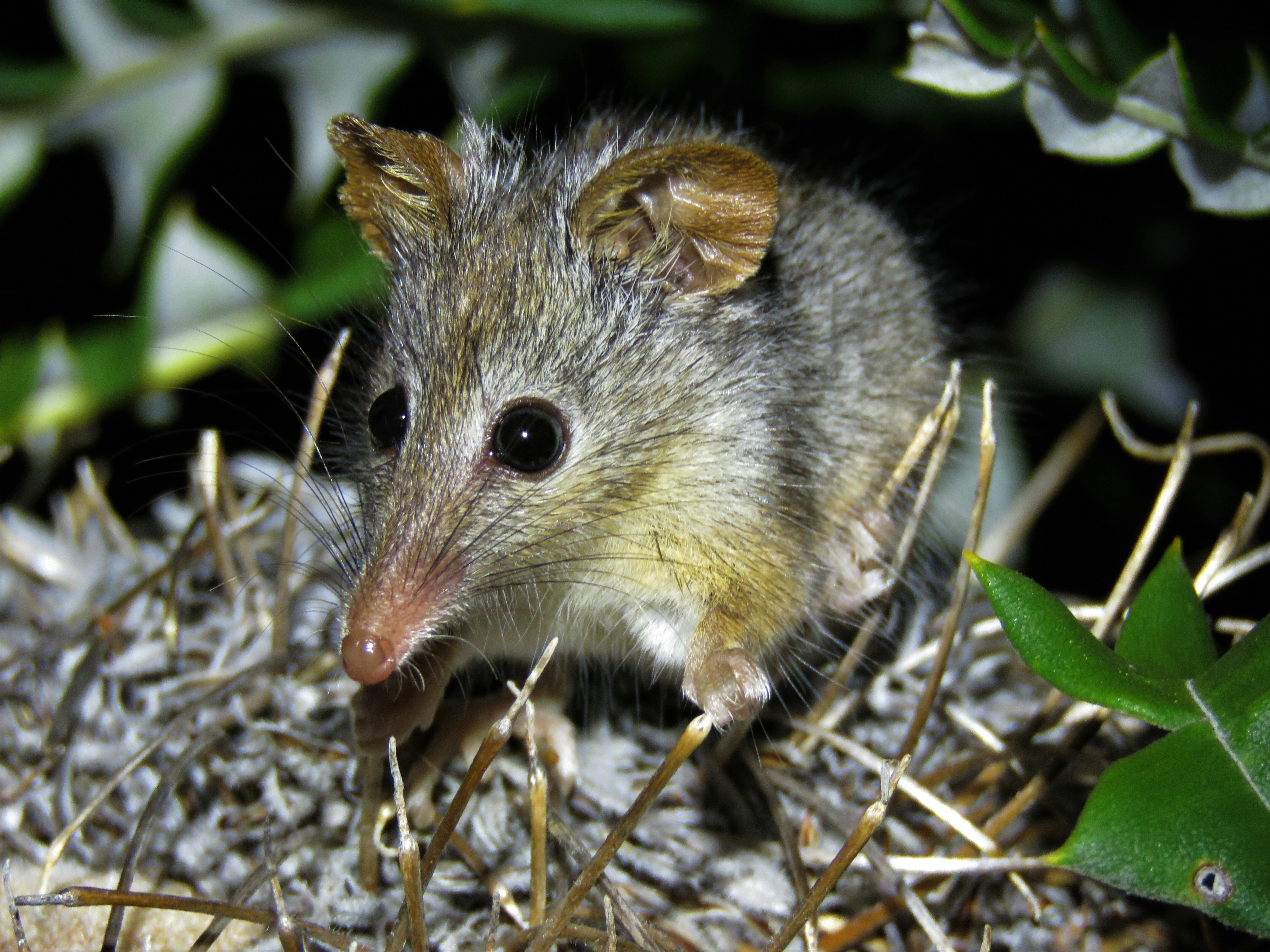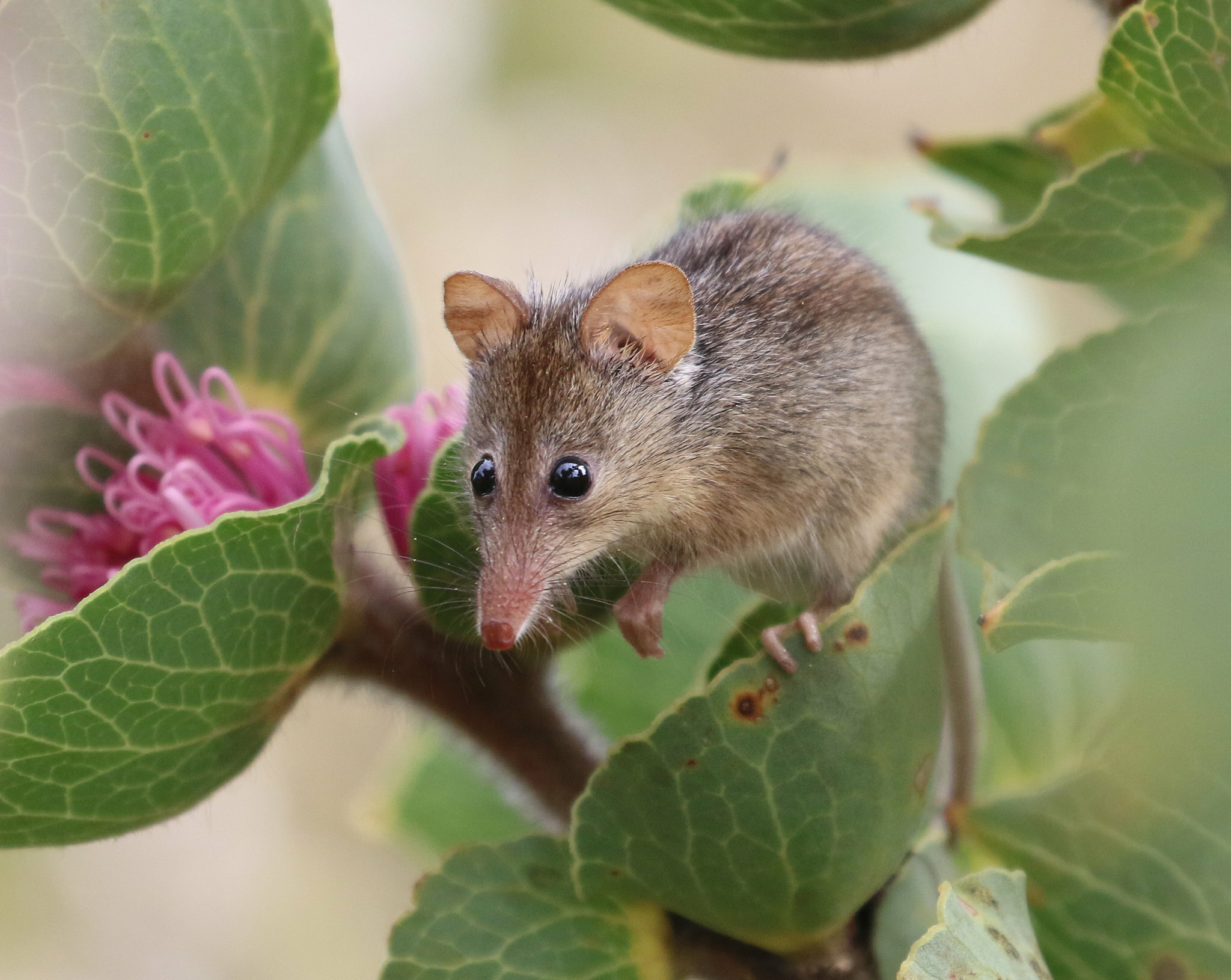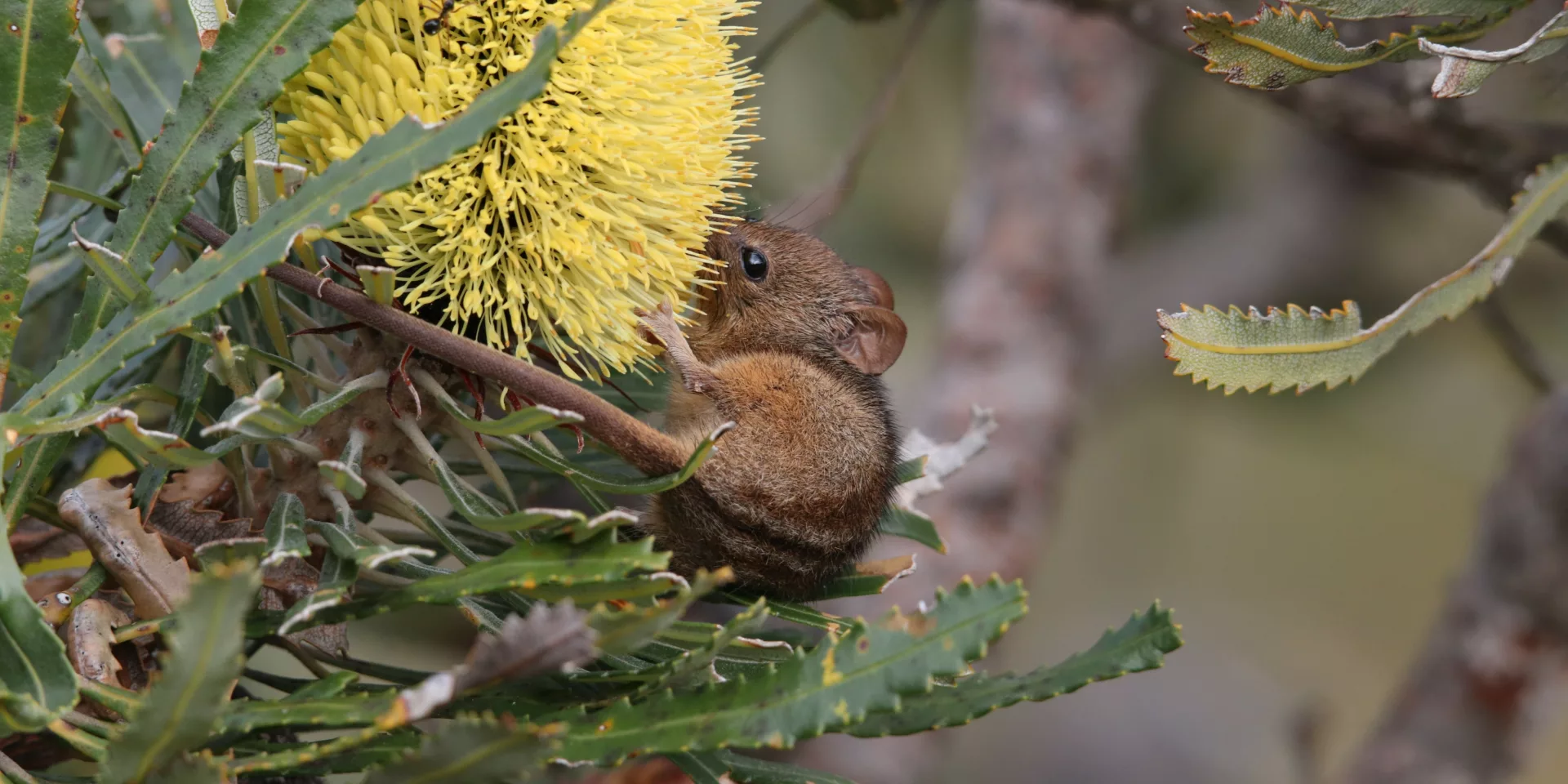Tarsipes rostratus - Noolbenger
These tiny, rare West Australian mammals are locally extinct across much of the Wheatbelt, Northern Sandplains and the Swan Coastal Plain around Perth. They rely on large intact areas of Banksia Woodland and heath to feed exclusively on the nectar and pollen of these diverse ecosystems. Their population is dependent on the high variety of different nectar-producing plants, as they need flowers for their food supply year-round.

Honey Possums use their long-bristled tongue to feed on Banksias, Callistemon species (Bottlebrushes), Anigozanthos sp. (Kangaroo paws) and Xanthorrhoea (Grass trees). They are essential pollinators for many native plant species, transferring pollen collected on their head and body between flowers. Their evolution is quite incredible, with Southwestern Australia the only ecosystem in the world where they could have evolved – it is the only place where pollen and nectar are readily available for all 12 months of the year.

They spend much of their time on the ground and have no means of protection against predators, making them highly vulnerable. The biggest threats to the survival of Honey Possums are habitat loss and inappropriate fire regimes as they rely on a rich diversity of flowering plants for a continuous food supply. Unlike nectar-eating birds, they can’t fly to different areas for new sources of food.
Honey Possums are most abundant where vegetation hasn’t been burnt for more than 20 years.
Female Honey Possums with joeys have been recorded as only moving less than 10m over several months. Females give birth to up to three joeys at any time of year when food is abundant, raising them in the pouch for about three months. At birth, Honey Possum joeys weigh only 4mg, attaining a weight of 10g at maturity. 10g is the approximate weight of two teaspoons of sugar!
Researchers predict that declining rainfall and increasing wildfires linked to climate change will adversely affect Honey Possum habitats.
How can you help Honey Possums? #
We have been working with Whiteman Park for over 25 years to restore Banksia Woodlands, which provide food and shelter for more than 50 nationally threatened wildlife species including these special little Honey Possums. Support our work here
Image credits: Jenny Thynne; Jimmy Lamb

